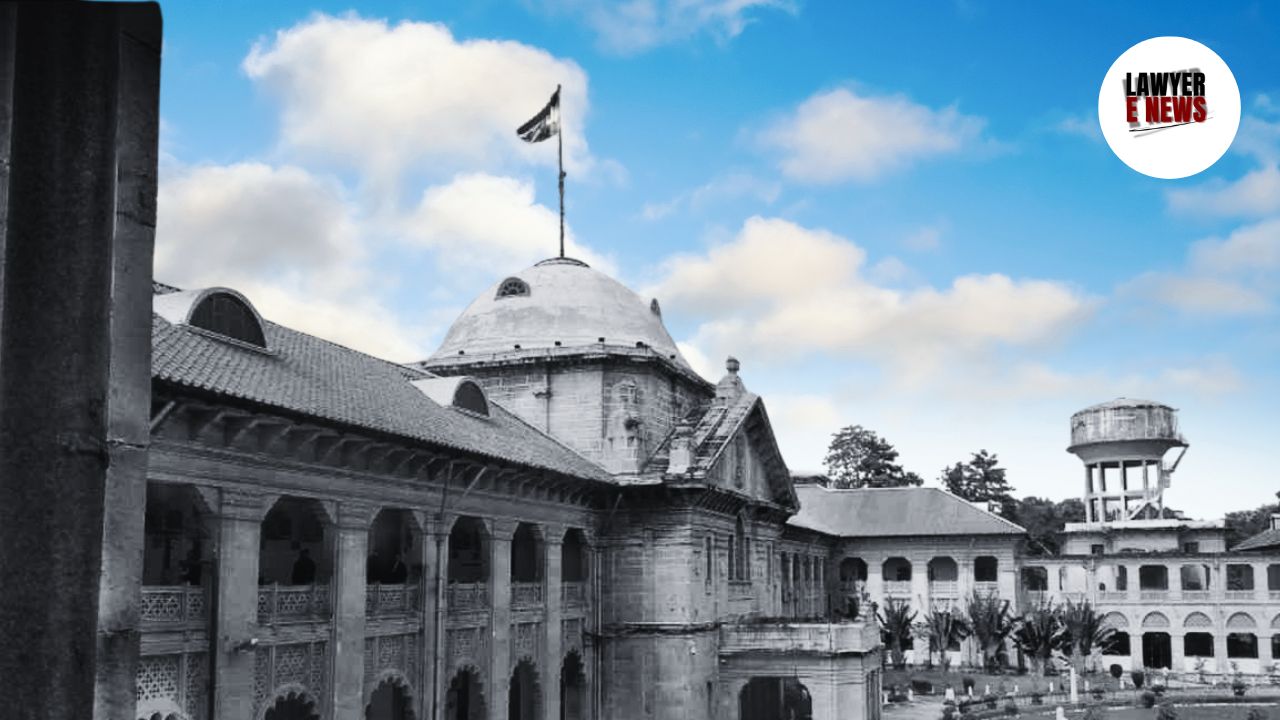-
by Admin
15 February 2026 2:36 AM



The Allahabad High Court quashed a dowry harassment case on October 3, 2024, dismissing the allegations against Pranjal Shukla and his family as general and vague. The court ruled that the case lacked specific evidence of dowry demands, thus constituting malicious prosecution. Justice Anish Kumar Gupta observed that matrimonial disputes often lead to the involvement of the entire family based on non-specific accusations, which should not be encouraged.
"General Allegations Cannot Justify Prosecution"
In dismissing the charges under Sections 498-A (cruelty), 504 (insult), 506 (criminal intimidation), and 509 (outraging modesty) of the IPC and Sections 3/4 of the Dowry Prohibition Act, the court highlighted:
"General and vague allegations... by no stretch of imagination can be said to be an offense of cruelty in terms of Section 498-A IPC."
The case arose from allegations made by Meesha Shukla, the wife of Pranjal Shukla, and her father, accusing the husband and in-laws of demanding dowry post-marriage and subjecting Meesha to cruelty. The FIR detailed various forms of abuse, including demands for money and physical cruelty. The in-laws were accused of dowry harassment after Meesha's refusal to meet their demands.
However, the court noted that the allegations in the FIR were not supported by specific dates, events, or corroborating evidence. The court further observed that the core issue appeared to stem from sexual incompatibility between the couple, rather than dowry harassment.
Citing landmark rulings like Geeta Mehrotra v. State of U.P. and Kahkashan Kausar v. State of Bihar, the court emphasized that general and vague allegations in matrimonial disputes do not constitute a sufficient basis for prosecution. The judgment reiterated that vague allegations of dowry demands, without specific instances or proof, amount to abuse of legal process. The court held:
"The court owes a duty to subject the allegations... to a thorough scrutiny to find out whether there is any grain of truth or whether they are made only with the sole object of involving certain individuals in a criminal charge."
The court further emphasized that criminal trials based on such allegations could unnecessarily scar the accused, even leading to acquittal after years of legal battles.
The Allahabad High Court concluded that the case against the Shukla family was concocted and designed to harass the applicants. The court quashed the entire criminal proceedings and the charge sheet filed against Pranjal Shukla and his family, calling it a misuse of the legal system to settle personal scores in matrimonial disputes.
Date of Decision: October 3, 2024
Pranjal Shukla & Ors. v. State of U.P.
